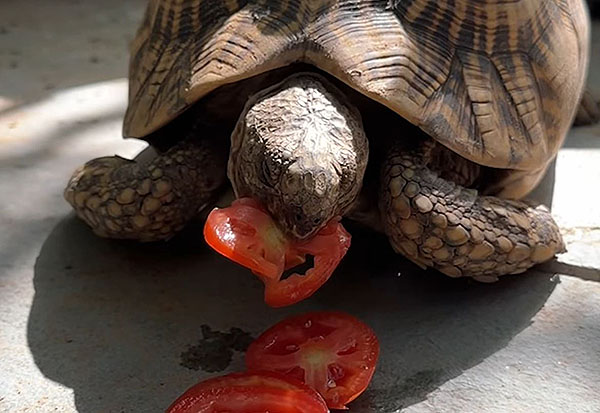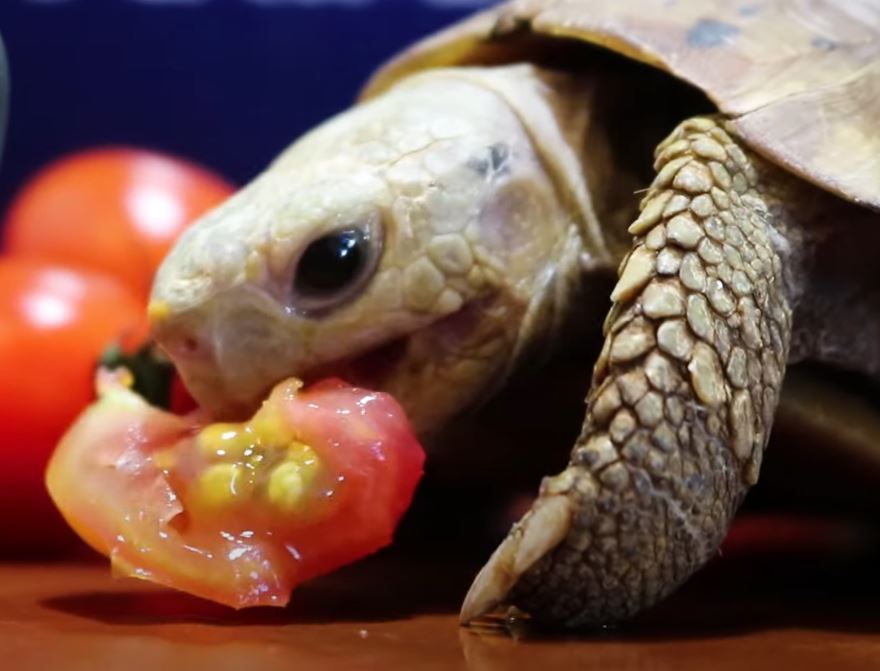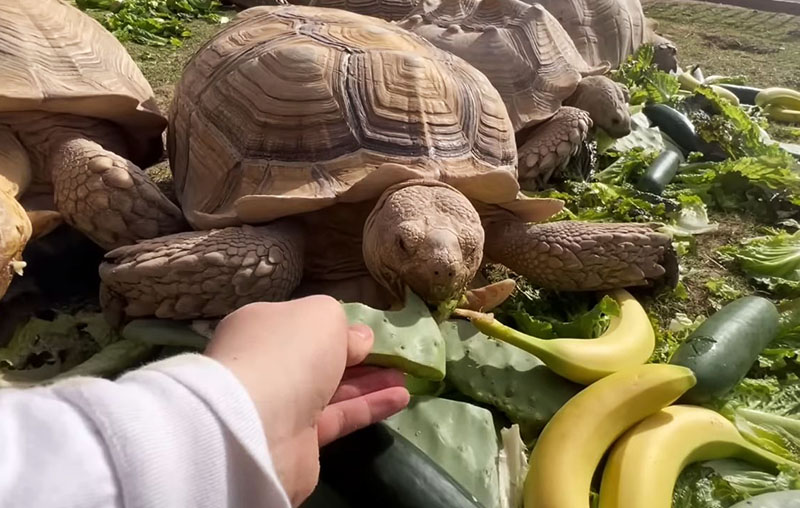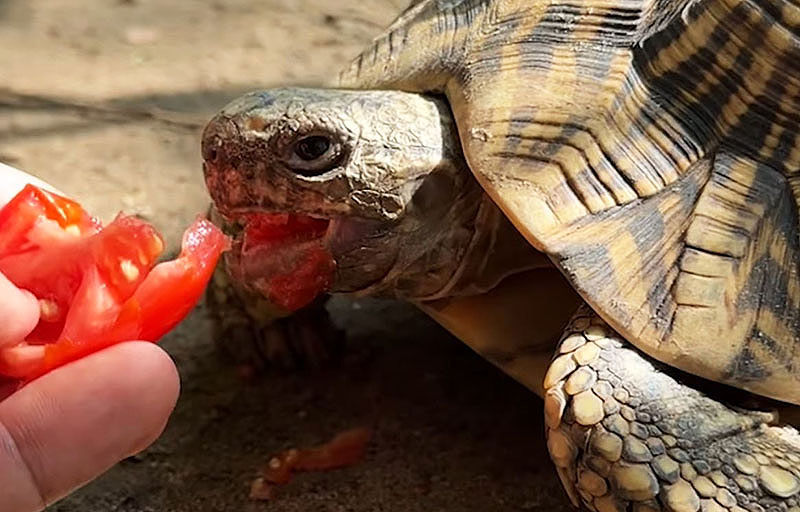Good news! Your tortoise can indeed eat tomatoes but with some precautions. When fed in moderation, tomatoes provide essential nutrients that benefit your pet.
However, avoiding overfeeding them with tomatoes is essential, as excessive consumption could have adverse effects.
Additionally, remember that tomato plants’ leaves and stems are toxic to tortoises, so only feed them the fruit.
Can all Tortoises Eat Tomatoes?
Yes, tortoises can eat tomatoes, but you need to know a few things before feeding this fruit to your beloved pet.
First, the amount of tomatoes you provide your tortoise should be limited. Overfeeding tomatoes can hurt their health.

Add tomatoes sparingly into your tortoise’s diet, making up only 5-10% of their overall intake.
This translates to approximately one every two weeks for an adult tortoise weighing around 150 grams (5 ounces).
Why the caution with tomatoes?
Tomatoes contain phosphorus, which can inhibit calcium absorption. As you may know, calcium is crucial for maintaining a healthy shell for your tortoise.
Also, unripe tomatoes can be toxic to tortoises, so always choose ripe tomatoes to avoid any potential harm.
Now, it’s not all bad news! Tomatoes do provide some excellent nutritional benefits. They contain good sources of vitamin C, K1, potassium, and antioxidants, all of which can benefit your tortoise.
Lastly, avoid feeding your tortoise the leaves and stem of the tomato plant, as these parts are poisonous to these gentle creatures.
Are Tomatoes Healthy for Tortoises?
When fed in moderation, tomatoes can be a healthy addition to your tortoise’s diet.
Tomatoes can help keep your tortoise hydrated due to their juicy flesh.
They are a good source of vitamins and minerals, such as vitamin A and potassium, which benefit your tortoise’s health.
Although the vitamins and minerals present in tomatoes are healthy for tortoises, their high sugar content can be harmful when consumed in large quantities.

To maintain a nutritious diet, it’s better to feed your tortoise a variety of greens and other plants that are low in sugar and high in essential nutrients, such as calcium and antioxidants.
What Should a Tortoise Eat?
Stick to greens like dandelion, watercress, and mustard greens, as they are packed with essential nutrients and are safe for most tortoise species.
Include a variety of vegetables, such as bell peppers, sweet potato, and zucchini.
Leafy vegetables like kale and cabbage can also be offered, but in moderation, to maintain a healthy calcium-to-phosphorus ratio.
Adding flowers like hibiscus and rose petals can add variety and color to their diet.
Fruits are a tasty treat for your tortoise but should be given sparingly due to their high sugar content. Water-rich fruits like melon and watermelon can be an occasional treat to help with hydration.
Avoid feeding high water-content fruits too often, as it may cause stomach issues for your desert-dwelling tortoises. It’s crucial to keep your tortoise’s species in mind when crafting their diet.

For instance, Mediterranean tortoises, such as the Hermann’s and Marginated tortoises, should focus more on leafy greens and weeds. On the other hand, Sulcata tortoises thrive best when consuming grass, hay, and fibrous vegetation.
Tomatoes, containing vitamin C, can be safely offered to your tortoise in moderation. However, make sure they are ripe and fed in small amounts.
Remember to provide clean water for your tortoise at all times.
Even though most of their water requirements are met through their diet, a constant water supply allows them to remain sufficiently hydrated and helps with digestion.
What Should You Not Feed a Tortoise?
First and foremost, you should avoid feeding your tortoise toxic plants and fruits, as they can cause illness and even be deadly.
Potato plants, for example, should never be fed to a tortoise as they can cause harm.
Furthermore, avoiding high-water-content foods like lettuce and cucumber is crucial since these can lead to diarrhea and provide little nutritional value.
When it comes to fruits, always choose ripe ones with low sugar content, like apples in limited amounts, and stay away from unripe fruits or those high in carbohydrates or sugar.
Avoiding citrus fruits is essential, as these can disrupt your tortoise’s digestive system and lead to health issues.
As for vegetables, it’s best not to feed them too much of any single type of green. Opt for a diverse diet with grasses, weeds, and leafy vegetables.
This way, your tortoise can obtain the proper balance of minerals, potassium, iron, and fiber.
Red vegetables like peppers can make for an occasional nice treat but don’t overdo it. Offering these as an infrequent snack provides variety without causing harm.
Conclusion
While all tortoises can eat tomatoes, it’s essential to regulate the amount and remove any toxic parts before feeding them this fruit.
By doing so, you’ll ensure your pet remains happy and healthy!
